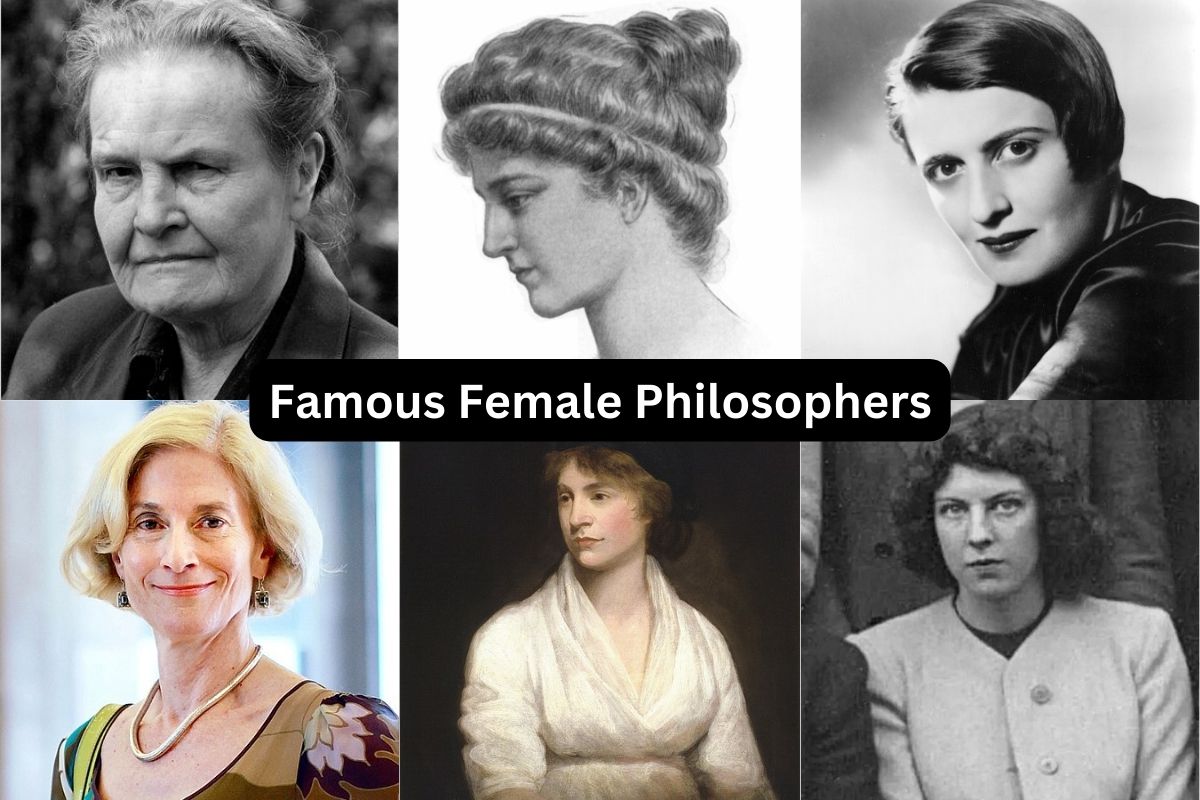Throughout history, women have made significant contributions to the field of philosophy, challenging traditional ideas and paving the way for new ways of thinking.
Despite facing many obstacles, such as social and cultural limitations, exclusion from educational institutions, and lack of recognition, women have persevered and left their mark on the discipline.
This list highlights some of the most famous female philosophers throughout history, including:
- Hypatia of Alexandria
- Hannah Arendt
- Simone de Beauvoir
- Judith Butler
- Martha Nussbaum
These women have made notable contributions to various branches of philosophy, including political theory, ethics, feminism, phenomenology, Marxism, and aesthetics, among others.
Their works continue to inspire and influence philosophers, scholars, and activists today, and they serve as important role models for future generations of female philosophers.
Famous Female Philosophers
1. Hypatia of Alexandria
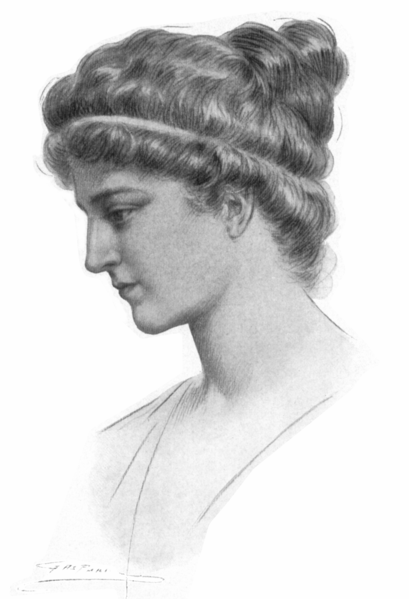
Hypatia of Alexandria was a philosopher, mathematician, and astronomer who lived in ancient Egypt during the fourth and fifth centuries CE. She was born in 355 CE and was the daughter of Theon, a mathematician who was also her teacher.
She became known for her intellectual prowess and was respected as one of the leading scholars of her time.
Hypatia taught philosophy and mathematics at the Neoplatonic school in Alexandria, which was a center of learning and culture during the Hellenistic period. She also made significant contributions to the study of astronomy, including inventing new devices for observing the stars.
Hypatia was known for her commitment to intellectual freedom and her willingness to challenge traditional beliefs. She was a staunch defender of reason and logic, and she believed that the pursuit of knowledge was a sacred duty. She was also an advocate for women’s rights and education, and she believed that women were capable of achieving great things if given the opportunity.
Unfortunately, Hypatia’s life was cut short by religious and political turmoil. In 415 CE, she was murdered by a mob of Christian zealots who accused her of witchcraft and heresy. Her death was a tragedy, and it was a blow to the intellectual and cultural life of Alexandria.
Today, Hypatia is remembered as a pioneering woman in the field of philosophy and as a symbol of intellectual freedom and independence. Her legacy continues to inspire scholars and activists around the world, and she remains an important figure in the history of philosophy.
2. Hannah Arendt
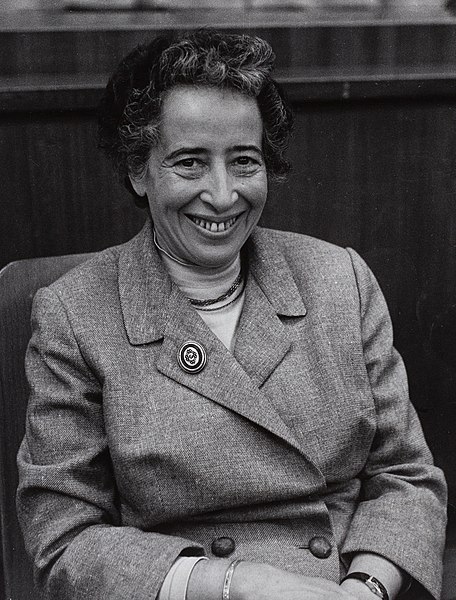
Hannah Arendt was a German-American philosopher and political theorist who lived from 1906 to 1975. She was born in Hanover, Germany and grew up in Königsberg. She studied philosophy with Martin Heidegger and Karl Jaspers, and her work is characterized by her engagement with political theory and her interest in the nature of totalitarianism.
Arendt’s most famous works include “The Origins of Totalitarianism,” “The Human Condition,” and “Eichmann in Jerusalem: A Report on the Banality of Evil.”
In “The Origins of Totalitarianism,” she analyzes the rise of totalitarianism in Europe during the 20th century, arguing that it was driven by a combination of modern imperialism, racism, and anti-Semitism.
In “The Human Condition,” she explores the relationship between politics and human life, arguing that political action is a fundamental aspect of human existence.
In “Eichmann in Jerusalem,” Arendt covered the trial of Adolf Eichmann, a Nazi official who was responsible for the deportation of Jews to concentration camps during the Holocaust. Her coverage of the trial was controversial, as she argued that Eichmann was not a monster, but rather an ordinary man who had been seduced by the ideology of the Nazi regime.
Arendt’s work continues to be influential today, particularly in the areas of political theory, ethics, and the study of totalitarianism. She is known for her critical approach to political power, her insistence on the importance of individual action, and her commitment to the idea of human freedom.
3. Simone de Beauvoir

Simone de Beauvoir was a French philosopher, writer, and feminist who lived from 1908 to 1986. She is best known for her groundbreaking work “The Second Sex,” which is considered a foundational text in feminist philosophy.
De Beauvoir’s philosophy is heavily influenced by existentialism, a philosophical movement that emphasizes individual freedom and responsibility. In “The Second Sex,” she argues that women are oppressed by a patriarchal society that denies them the same rights and freedoms as men. She famously writes, “One is not born, but rather becomes, a woman,” suggesting that gender is a social construct rather than a biological given.
In addition to her work on feminism, de Beauvoir also wrote extensively on ethics, politics, and existentialism. Her other notable works include “The Ethics of Ambiguity,” “The Mandarins,” and “The Prime of Life.”
De Beauvoir’s legacy continues to be influential in philosophy, feminism, and other areas of intellectual inquiry. Her work challenged traditional ideas about gender and identity, and she advocated for a more inclusive and egalitarian society. She is remembered as one of the most important thinkers of the 20th century, and her ideas continue to inspire and provoke intellectual discussion and debate.
4. Aspasia
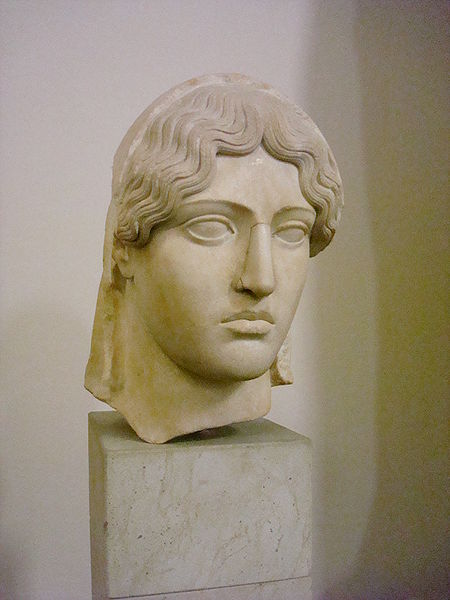
Aspasia was an influential figure in ancient Greece, who lived during the 5th century BCE in Athens. She was a philosopher and a courtesan, and she was known for her beauty, wit, and intelligence. She was also the longtime companion of the Athenian statesman Pericles, who was one of the most powerful men in Athens at the time.
Aspasia’s intellectual and social status made her a target of criticism by some of her contemporaries, who accused her of corrupting the morals of Athenian society. Nevertheless, she continued to play an important role in the intellectual and cultural life of Athens, and she was known for her eloquence and her ability to engage in philosophical debates with leading thinkers of the time.
Although few of Aspasia’s works have survived to the present day, she is believed to have been an important influence on the philosophical and literary circles of ancient Athens. She is said to have inspired some of the most famous thinkers of the time, including Socrates, who is said to have been a frequent visitor to her salon.
Aspasia’s legacy continues to be an inspiration for women in philosophy and intellectual life today. She challenged traditional ideas about gender roles and the place of women in society, and she demonstrated that women could be as intellectually capable and influential as men. Although her life and work have been the subject of much debate and speculation, her impact on the history of philosophy and intellectual life in ancient Greece is undeniable.
5. Philippa Foot
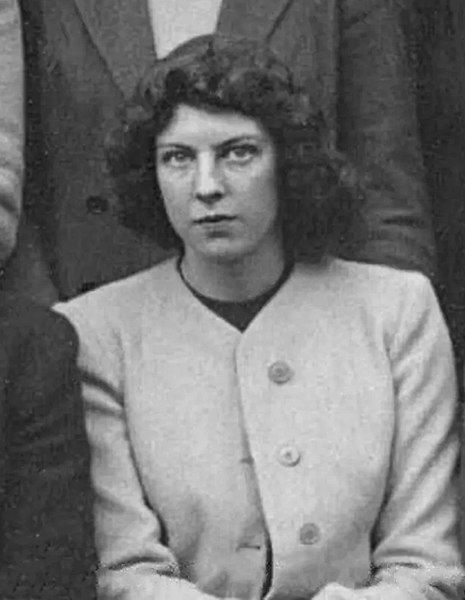
Philippa Foot was a British philosopher who lived from 1920 to 2010. She is best known for her contributions to the field of ethics, particularly for her development of the moral philosophy known as virtue ethics.
Foot’s approach to ethics emphasizes the importance of character and moral excellence, rather than rules or principles. She argued that moral judgments should be based on the virtues of the person performing the action, rather than on a set of universal moral principles.
She believed that virtues such as honesty, courage, and compassion were central to living a good life and that cultivating these virtues was the key to developing a strong moral character.
Foot’s work also extended to other areas of philosophy, including philosophy of mind, metaphysics, and the philosophy of language. She was known for her clear and precise writing style, and her work has been influential in shaping the direction of contemporary philosophy.
One of Foot’s most famous contributions to philosophy is the trolley problem, a thought experiment that has become a standard topic in ethical discussions.
The problem involves a dilemma in which a person must choose between allowing a trolley to continue on its course, leading to the death of several people, or diverting the trolley onto a different track, leading to the death of only one person. The problem raises important ethical questions about the nature of moral decision-making and the role of consequences in moral reasoning.
Foot’s legacy continues to be influential in contemporary philosophy, particularly in the field of ethics. Her emphasis on character and virtue has inspired new developments in moral philosophy, and her contributions to the trolley problem have helped to shape ongoing discussions about the nature of moral decision-making.
6. Martha Nussbaum

Martha Nussbaum is an American philosopher who was born in 1947. She is one of the most influential contemporary philosophers and is known for her work in a wide range of areas, including political philosophy, ethics, and ancient Greek philosophy.
Nussbaum’s work is characterized by her commitment to exploring the relationship between philosophy and practical problems in society. She has argued for the importance of philosophy in shaping public policy and has worked to develop a more inclusive and diverse approach to philosophical inquiry.
Nussbaum has written extensively on topics such as human rights, justice, and the role of emotions in moral reasoning. She has also written extensively on the works of ancient Greek philosophers such as Aristotle and Plato, arguing that their ideas remain relevant to contemporary debates about politics and ethics.
One of Nussbaum’s most famous works is “Frontiers of Justice: Disability, Nationality, Species Membership,” in which she argues for a new approach to the concept of justice that is more inclusive and that takes into account the needs and experiences of marginalized groups.
She has also written about the importance of the humanities in education and has advocated for a broader and more inclusive approach to liberal education.
Nussbaum has received numerous awards and honors for her contributions to philosophy, including the Kyoto Prize in Arts and Philosophy, one of the most prestigious international awards in the humanities.
Her work continues to be influential in contemporary philosophy and has inspired new developments in areas such as political theory, feminist philosophy, and the philosophy of emotions.
7. G. E. M. Anscombe

G. E. M. Anscombe was a British philosopher who lived from 1919 to 2001. She is known for her contributions to the fields of philosophy of language, action theory, and moral philosophy. Her work is characterized by its rigorous analytical style and its emphasis on the importance of ordinary language.
Anscombe was a student of Ludwig Wittgenstein, and she was one of his closest collaborators. She played a key role in the development of his later philosophy, particularly his ideas about language and meaning.
She is perhaps best known for her essay “Modern Moral Philosophy,” in which she argued that the dominant theories of ethics in the 20th century were misguided because they attempted to derive moral principles from factual statements.
Anscombe’s work also extended to other areas of philosophy, including philosophy of mind, metaphysics, and philosophy of religion. She was a devout Catholic, and her religious beliefs influenced much of her philosophical work.
One of Anscombe’s most famous contributions to philosophy is her concept of intention. She argued that intention is a central aspect of action, and that it is necessary for understanding the moral significance of actions. Her work on intention has had a major influence on the field of action theory.
Anscombe’s legacy continues to be influential in contemporary philosophy, particularly in the areas of philosophy of language, action theory, and moral philosophy. Her emphasis on the importance of ordinary language and her rigorous analytical style have inspired new developments in these areas of inquiry.
8. Iris Murdoch

Iris Murdoch was a British philosopher and novelist who lived from 1919 to 1999. She is known for her contributions to the fields of moral philosophy, political philosophy, and literary theory, as well as for her critically acclaimed novels.
Murdoch’s philosophy is characterized by its rejection of the idea that there are objective moral principles or rules that can be applied universally. Instead, she argued that moral judgments must be made in the context of particular situations, and that they must be grounded in an awareness of the complexity of human experience.
Murdoch’s work also extended to other areas of philosophy, including the philosophy of mind, metaphysics, and aesthetics. She was interested in the role that literature and art can play in shaping our understanding of the world, and she wrote extensively about the relationship between philosophy and literature.
In addition to her work as a philosopher, Murdoch was also a highly regarded novelist. Her novels explore many of the same themes as her philosophical work, including the nature of morality, the complexity of human relationships, and the power of love and compassion.
Murdoch’s legacy continues to be influential in contemporary philosophy, particularly in the areas of moral philosophy and political philosophy. Her emphasis on the importance of context and her rejection of simplistic moral principles have inspired new developments in these areas of inquiry. Her novels continue to be widely read and admired for their insight into the human condition and their exploration of the relationship between philosophy and literature.
9. Mary Wollstonecraft
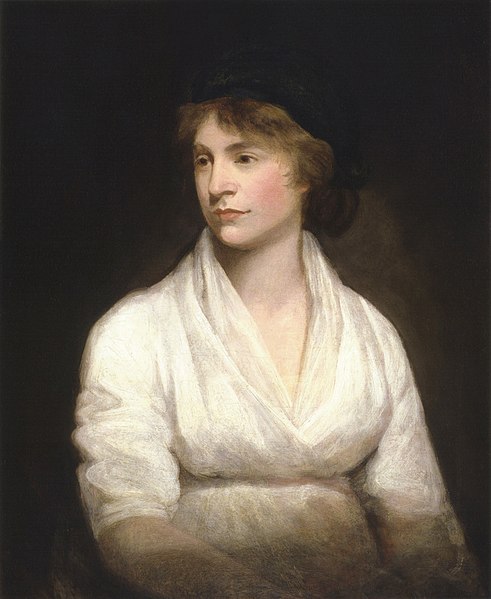
Mary Wollstonecraft was an English writer, philosopher, and feminist who lived from 1759 to 1797. She is best known for her work “A Vindication of the Rights of Woman,” which is considered one of the earliest works of feminist philosophy.
Wollstonecraft’s philosophy is characterized by her emphasis on the importance of education and her rejection of traditional gender roles. She argued that women were capable of achieving the same level of education and intellectual achievement as men, and that they should have the same opportunities and rights as men in all areas of life.
Wollstonecraft’s work also extended to other areas of philosophy, including political theory and ethics. She was a strong advocate for democracy and believed that individuals had a duty to contribute to the welfare of society as a whole.
In addition to her work as a philosopher, Wollstonecraft was also a novelist and a travel writer. Her most famous novel, “Frankenstein,” is considered a masterpiece of Gothic literature and has inspired numerous adaptations and retellings.
Wollstonecraft’s legacy continues to be influential in contemporary philosophy, particularly in the areas of feminism, political theory, and ethics. Her emphasis on the importance of education and her rejection of traditional gender roles have inspired new developments in these areas of inquiry. Her work also continues to inspire new generations of writers and artists, and her impact on literature and culture is undeniable.
10. Ayn Rand
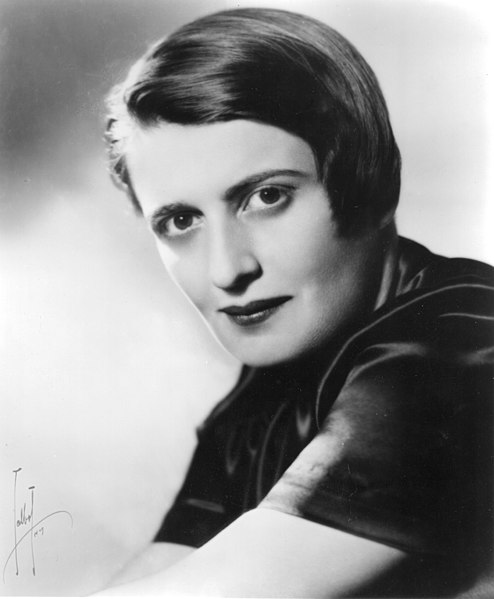
Ayn Rand was a Russian-American philosopher and novelist who lived from 1905 to 1982. She is best known for her philosophy of Objectivism, which emphasizes individualism, reason, and laissez-faire capitalism.
Rand’s philosophy is characterized by her rejection of altruism and collectivism, and her advocacy for self-interest and individualism. She believed that individuals should pursue their own rational self-interest and that the pursuit of profit and material success was a moral virtue. She also believed that laissez-faire capitalism was the only social system that allowed individuals to achieve their full potential.
Rand’s work also extended to other areas of philosophy, including epistemology, metaphysics, and aesthetics. She believed that reason was the only means of acquiring knowledge and that reality was objective and independent of human consciousness. She also believed that art should celebrate the heroism and potential of the individual.
In addition to her work as a philosopher, Rand was a highly regarded novelist. Her novels, including “Atlas Shrugged” and “The Fountainhead,” are considered classics of American literature and have had a major influence on popular culture and political discourse.
Rand’s legacy continues to be influential in contemporary philosophy and politics, particularly in the United States. Her advocacy for individualism and capitalism has inspired new movements in libertarianism and conservatism, while her ideas about the role of reason and the nature of reality have had a major influence on epistemology and metaphysics.
However, Rand’s philosophy has also been criticized for its narrow focus on individualism and its rejection of altruism and collectivism.
